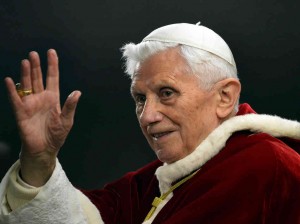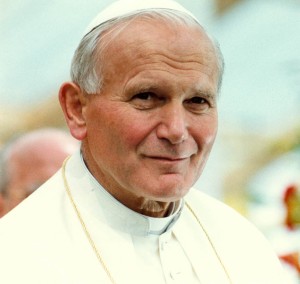
In a country where Protestant Christianity stands as the dominant religion and Roman Catholicism often seems to be at a disjoint with the operations of Rome, it can be easy to underestimate the significance of this past week’s events. On Ash Wednesday, Pope Benedict XVI said his last mass as the Church’s leader, and became the first Pope to resign in nearly 600 years, the last being Pope Gregory the XII in 1415. I admit that I myself (even as a Roman Catholic) didn’t fully realize the importance of this event until after thinking about it more closely. However, I believe that the resignation of Pope Benedict XVI creates an interesting situation for the future of the Catholic Church, in which the Church will either continue on its liberalizing path, or attempt to recover some of its lost traditionalism.
This is an interesting time in Catholic history. It is not hard to forget that just over 50 years ago the Catholic Church went through radical liturgical and theological changes that defined Roman Catholicism as we so know it today. These changes took place at the Second Vatican Council, the Church’s 21st ecumenical council. Among the most visible changes that the council made was a shift from a universal Latin liturgy to a liturgy that may be spoken in the vernacular of the particular congregation.
The change from a universal Latin Mass seems like a commonsensical move, I mean, doesn’t it make sense to hear a church service in your own language? But to Roman Catholics, this was a huge change, and it is difficult from our present-day perspective to appreciate just how radical it was. The Latin Mass has traditional roots that stretch back as early as the year 250 A.D and since the 16th Century it had been the official language of Catholic services worldwide. For Catholic theologians this was an important aspect of the Church’s practice, as it fostered unity not only with congregations worldwide, but also with the congregations across the historical spectrum. Unity of the believing body of Christ is among the irreducible goods for the Catholic, and the Latin Mass was among the most important tools for transcending cultural boundaries that may inhibit such unity.
However, Vatican II changed the liturgical framework, along with other things, in order to

better accommodate the Catholic Church to the modern world. But many believed that these decisions were compromising the Church’s distinctiveness and encouraging a liberally minded acceptance of wavering ideologies. At what point ought the Church attempt to accommodate for the increasingly pluralistic and scientific age, and when should the Church make the world accommodate to itself? This is a theologically difficult question, and to some, the Second Vatican Council made it loud and clear that the Catholic Church was ready to transgress its traditionally substantiated practices in order to meet the needs of the modern worldview.
But what does any of this have to do with the recent Pope’s resignation? Well, though Pope Benedict XVI has been labeled as a conservative, many forget that he, then known as Joseph Ratzinger, was one of the young theologians pushing for the Vatican II changes. Appearing at each of the Vatican II meetings in a business suit, young Ratzinger, along with Karol Wojtyla, (who would become Pope John Paul II) defended the belief that the Church needed serious changes if it were to remain effective in the changing world. Thus, Benedict XVI stands as one of the last active original members of the Second Vatican Council, and among the last of the original advocates of its general trajectory.
Therefore, the last two popes each had a personal investment in the post-Vatican II Catholic mission: which, generally put, is to seek ways in which the Church can change in order to improve its influence upon the world. Many traditionalists believe that this is almost entirely opposite to the Catholic Church’s mission, which they deem to be maintaining a historical and theological bridge between believers today and the apostle Peter, claimed to be the first pope of the Catholic Church. So, with Benedict XVI leaving his position as the leader of 1.2 billion believers, in what direction will the next pope lead the Church? Traditionalists may claim that now that a main advocate of Vatican II has exited the papacy, it is now time for a pope to attempt to re-emphaisize the Church’s traditional distinctiveness, as opposed to liberalism. Yet, others believe that the next pope may continue Vatican II’s liberalizing trajectory, perhaps enacting changes such as the ordination of women to the priesthood and a progression of LGBT rights. The papacy, leaving behind one of the original advocates of Vatican II, is at a crossroads. The cardinals hope to have elected a pope by Easter, which puts a deadline on the Catholic Church’s decision-making. Regardless of the direction in which this largest body of Christian believers goes, the Catholic Church’s next steps will have immense ramifications for the ongoing dialogue between the secular world and the Christian tradition.

One reply on “Future of Catholicism After Benedict XVI and John Paul II”
My understanding as a prncticiag Catholic, is that love is paramount and can only happens where faith and truth meet in the Eucharist. What I am saying is that Jesus is Present in the Eucharist and He can only be met or should I say received when these conditions met. What I am saying is that the Catholic Church can’t adopt laws that are contrary to the Dogma of the Faith, and then think that people will be able to receive the Eucharist without consequences. I think the whole picture is to save and protect love. I believe that gays should be treated with love, compassion, respect and be given human dignity like anyone else. Segregation doesn’t work, it’s just another word for hate and in this regard those who practice it are a big bunch of hypocrites. If there’s something I hate it’s to be treated different, looked down, isolated, this I think is a really grave injustice. I’m against same-sex marriage. I think people are missing the point. Same-sex marriage isn’t about love, it’s just about sex and it is self-centered. The real love is Jesus.What I do believe that is possible, is for gay people to find a compatible special friendship and this can be source of joy, happiness and peace.